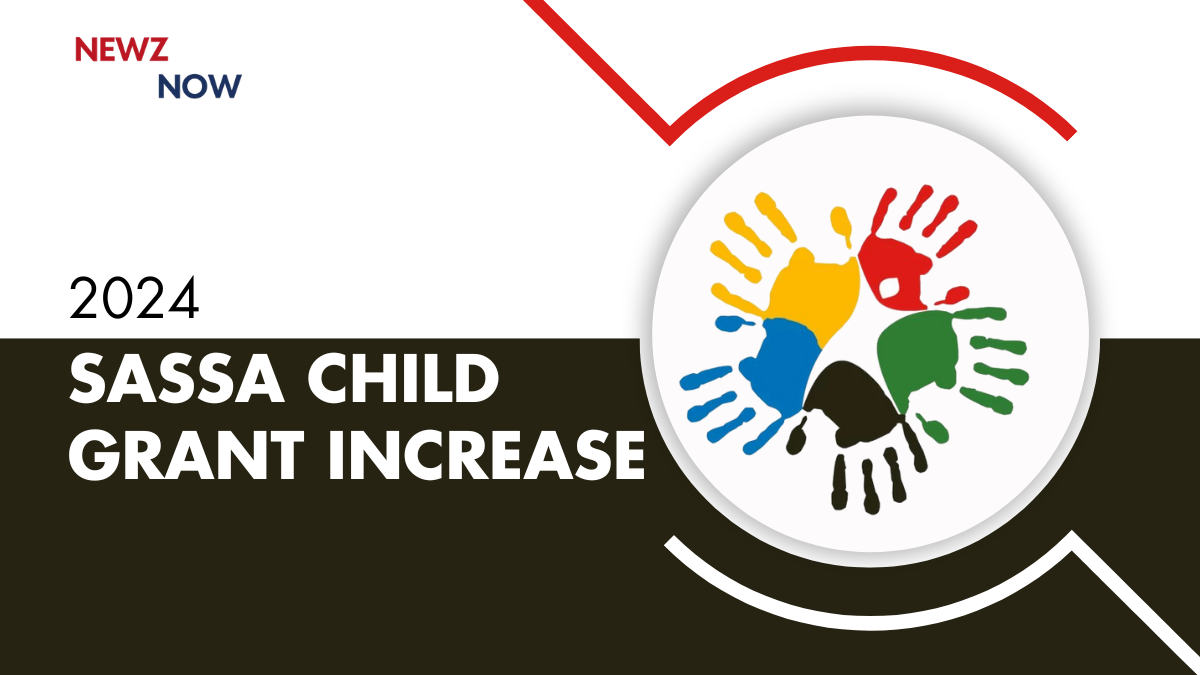South Africa is grappling with a severe socio-economic crisis marked by extremely high unemployment rates and pervasive poverty. Recent statistics reveal that around 40% of the working-age population is unemployed, and more than 55% of citizens live in poverty. These challenges affect the nation’s economy and have serious repercussions for social stability and public health, particularly impacting children who are among the most vulnerable in society.
SASSA Child Grant Increase 2024
The Child Support Grant is a key element of the South African government’s efforts to provide financial relief to impoverished families. With 13.2 million children benefiting from this program, it is designed to assist families in meeting basic needs. However, the grant, currently set at R530 per month, falls significantly short of the established food poverty line of R760, revealing a substantial gap between the financial support offered and the actual cost of living.
Current State of the Child Support Grant
The R530 monthly grant is far below what is required to cover even basic nutritional needs. The food poverty line in South Africa, which defines the minimum cost for essential food to sustain life, stands at R760. This difference represents a 30% shortfall, making it nearly impossible for families relying on the grant to feed their children adequately.
For example, Sarah Hlongwane, a beneficiary, struggles to provide for a household of 12. The grant barely covers her children’s nutritional needs, let alone expenses like school transport or housing. This disparity between the grant amount and the actual cost of living illustrates the dire need for increased financial support for impoverished families.
| Grant Amount | Food Poverty Line | Shortfall |
|---|---|---|
| R530 | R760 | 30% |
Proposed Solutions to Alleviate Poverty
Experts and government officials have suggested several measures to strengthen the social security system and provide more effective support for low-income households to address the deep-rooted poverty and economic instability. These proposals target both immediate relief and long-term structural reforms.
Expanding VAT Exemptions
One proposed strategy is to expand the list of value-added tax (VAT)-exempt essential food items. This move would reduce the cost of basic goods, making them more accessible to low-income families. By lowering the price of necessities such as bread, rice, and other staples, the government could indirectly raise the real income of poor households, easing financial pressure without increasing direct cash transfers.
Capping Administered Prices
Economic experts like Mervyn Abrahams have called for capping administered prices—especially on essential services such as electricity and fuel. These costs significantly impact the overall cost of living, disproportionately affecting low-income families. By regulating these prices, the government could help stabilize living expenses, preventing sudden price hikes that would push struggling families further into poverty.
Increasing the Child Support Grant
A major recommendation from economic justice groups is to raise the child support grant to at least match the food poverty line of R760 per month. The current grant amount is inadequate to cover basic needs, particularly for nutrition. Increasing it would provide immediate financial relief for millions of families, ensuring that children have access to sufficient food and a nutritious diet, which is vital for their development and well-being.
Addressing Long-Term Health and Development Issues
Experts also stress the importance of combating the long-term impacts of poverty, such as stunting and poor health outcomes in children. Stunting—a result of chronic malnutrition—affects around 30% of boys and 25% of girls under the age of five in South Africa. It leads to severe physical and cognitive impairments, which cascade effects on educational performance and future economic prospects. Enhancing the child support grant and improving access to nutrition would reduce stunting and ensure healthier, more productive future generations.
Economic Impact and Broader Consequences
The ongoing economic challenges have dire consequences for the nation’s children, who are particularly vulnerable to the long-term effects of poverty. Malnutrition, reflected in high rates of stunting, compromises children’s ability to succeed both academically and economically later in life. This in turn perpetuates cycles of poverty and poor health, with broader implications for the nation’s social and economic stability.
Conclusion
South Africa’s socio-economic crisis requires a comprehensive approach to alleviate poverty and enhance social security. The Child Support Grant remains a critical tool, but its current value falls short of meeting basic needs. Raising the grant to align with the food poverty line, along with measures such as VAT exemptions on essential goods and price caps on utilities, could provide significant relief to struggling families.
In tandem with these reforms, addressing long-term issues such as child stunting and health will be essential to improving the prospects of South Africa’s most vulnerable citizens. The government can create a more sustainable and equitable future for all by taking a multi-pronged approach to poverty alleviation.
Click the link to know more
